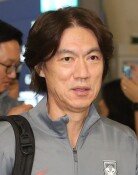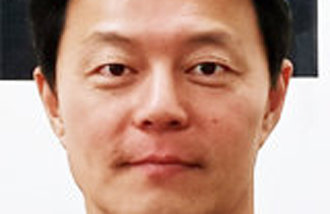The hacktivist group is savior or destroyer?
The hacktivist group is savior or destroyer?
Posted April. 19, 2013 07:09,
On a day in the 1990s, the news that "computer hacker" appeared for the first time in Korea made headlines. I remember reading the story because the hacker sounded novel at a time when the Internet was being first introduced. In fact, there was a joke that the immigration office imposed a departure ban at the airport on a hacker who had entered Korea, to catch him. It was time of computer ignorance, when people misunderstood computer virus as a virus living in the computer, and General Failure as a military general by the name of "Failure."
Now, most people are aware of what hackers are. Hackers are people who use their outstanding computer programming skills through the route of darkness. Given that someone who designs programs is called a programmer, and the one who destroys programs is called a hacker, the programmer and hacker are the front and back of the same coin. Though hacking is illegal, the term hacker gives the impression of an immature computer genius. Sometimes, companies scout a hacker who caused a major stir, including crashing of a computer network. Hackers are the subjects of criticism in that they ridicule and destroy conventional order, but can provide exciting sense of catharsis to people who are resistant to the existing order.
In literary work or Hollywood movies, hackers are destroyers of order and heroes in hiding. Lisbeth, the heroine in the Swedish novel The Girl with the Dragon Tattoo, which was also made into movie, is a gifted hacker. Fighting the government that deprived an individual of happiness, she joins forces with the hero, a newspaper reporter, and resolves a case by banking on their outstanding hacking skills. In the movie Die Hard 4, the opponent of the protagonist John McClane is an ex-government computer specialist attacking the U.S. computer system. And McClane has a highly talented hacker who is supporting him.
As speculated, the South Korean authorities have found the cyber-attacks on broadcasters and financial institutions on March 20 were carried out by North Koreas Surveillance Bureau. Meanwhile, international hackers group Anonymous hacked Between the Korea People, the Norths propaganda website targeting the South, and disclosed a list of members. The group also hacked five other North Korean Internet sites Monday, the Day of the Sun (birthday of North Koreas founder Kim Il Sung). In an open statement, Anonymous has demanded that North Korean leader Kim Jong Un resign, stop making nukes and nuke-threats, and allow North Koreans to have free access to the Internet, and has announced a plan to hack Kwangmyung, the Norths internal network, on June 25. The duel between one-man dictatorship and a group of anonymous hackers naturally makes people recall the image of Robin Hood, who fights crooked feudal lord. In fact, Anonymous uses as its symbol the mask of V for Vendetta, the righteous outlaw that fights dictatorship.
When learning more about activities of Anonymous, people will not afford to gladly laud their activities. The Hacking group has hacked the U.S. Central Intelligence Agency and Congress, and Japanese electronics company Sony. When online transaction settlement firms including PayPal denied providing service to WikiLeaks, the group attacked those companies networks as well. Anonymous denies not only dictatorial regimes including North Korea and the Middle East but also government censorship and surveillance. Considering that Anonymous means unknown identity, what it ultimately pursues becomes all the more clear. It opposes authority and conventional order, but supports unlimited communication of information and freedom of expression. As such, it is so natural that the hacktivist group lacks leaders or a command system. What can nationality be meaningful in the Internet and how can a leader exist in a spider web organization?
What would happen if North Koreas cyber unit and Anonymous face off? Though you are not computer experts, you can predict a correct answer. Members of the Norths cyber unit must be so talented that they would be working at Samsung Electronics or Naver if they were in the South, but in reality, the North Korean hackers work on orders. The essence of hacking is voluntarism and intangibility. On the Internet, a structured system cannot defeat intangibility. This is the aspect that while Anonymous activities are interesting but cannot be blindly welcomed. Anonymous demanded Pyongyang direct democracy, not democracy. In the 2008 candlelight vigils in South Korea, the hacktivist group denied a government that was elected through vote, and demanded direct democracy. Anonymity and hacking have in common; they both are attractive but dangerous.







